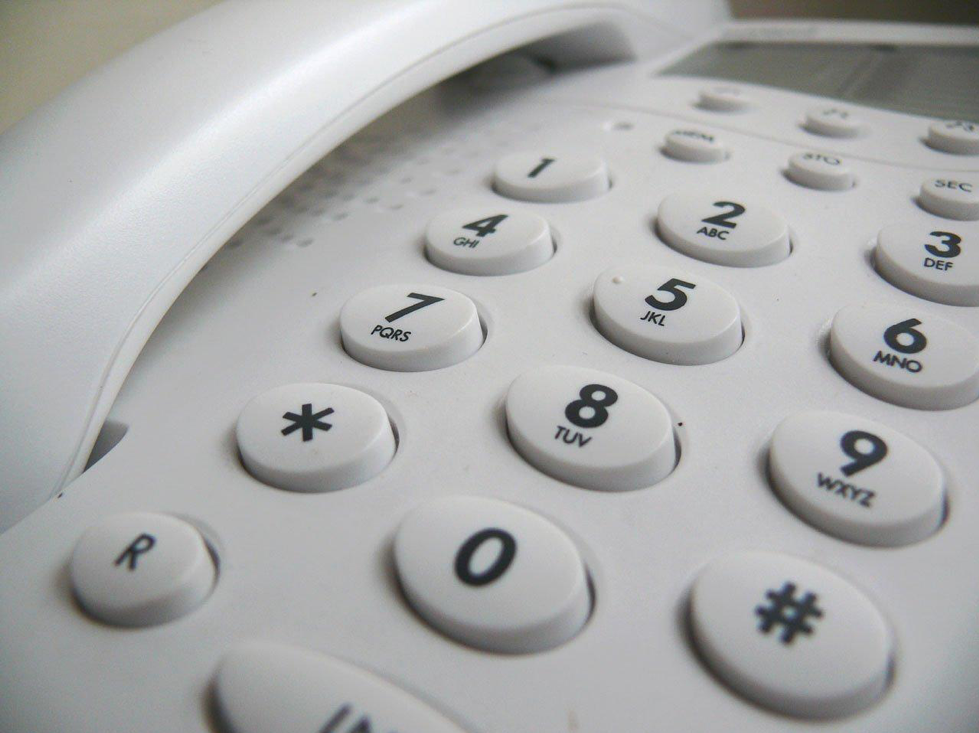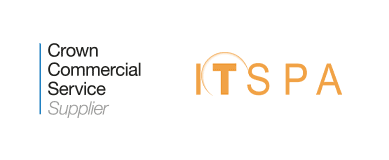For all of your smart business processes, your incredible data lists and your hottest leads, the people that really determine campaign success are your agents. On every call, it’s their job to deliver the best service or close deals – and their motivation is critical. Motivation comes in many shapes and sizes. It’s something to consider in everything you do, from creating a culture of good communication to promoting agent wellbeing. We take a look at five ways in which you can bring out the competitive side of your contact centre agents, and how a predictive dialler can help to achieve this!
Why Healthy Competition Makes Healthier Contact Centre Campaigns
Competition can play a key role in improving motivation and encouraging every agent to improve their performance over time. While too much competition can create a high-pressure environment, just enough can create a place where everyone strives to be at their best – and better than the rest.
According to Top Dog: The Science of Winning and Losing by Po Bronson and Ashley Merryman, 50 percent of people benefit from healthy workplace competition. Interestingly, the authors note that the biggest benefits aren’t in those who are naturally competitive people – they’re found in people who are less secure and confident in their work.
With the right tactics and techniques, you can bring out the competitive side of even your least naturally competitive agents, as well as capitalising on your more naturally ambitious team members.
Set Universal Targets

Most of us are probably already using targets and Key Performance Indicators (KPIs) for our agents as a way of measuring and assessing performance. These can also become a useful way for agents to compare performance against their peers, fostering a spirit of competition.
However, the way you set these targets has a huge impact on how successful they are. According to Harvard Business Review, it’s important that goals are tailored to individual agents, striking a balance between being challenging and attainable. Of course, this makes encouraging competition difficult, since agents could be working towards very different measures of success.
One good strategy is to translate individual targets into more universal ones. You could do this by:
● Turning metrics into percentages – so agents can compete based on how close they are to hitting their targets, not the specific targets themselves.
● Using incremental targets – so agents can compete based on whether they have hit their first (easy), second (main) or third (tough) target for the session, day, week or month.
Meanwhile, your agents can compete on shared targets they have in common, such as number of sales or positive customer feedback surveys per week.
Tech Tip: Setting effective targets depends on having access to the right information. To improve performance, you need to know what performance looks like at the moment. Your dialler should be able to give you in-depth reports on a wide variety of call metrics, from talk time to call dispositions. This information becomes the foundation of your targets.
Gamification

Setting effective targets depends on having access to the right information. To improve performance, you need to know what performance looks like at the moment. Your dialler should be able to give you in-depth reports on a wide variety of call metrics, from talk time to call dispositions. This information becomes the foundation of your targets.
It’s a world of scores, levels and rewards – one that’s familiar to your agents and automatically provokes a sense of competition. However, it’s not always easy to get it right. According to Gartner, 80% of workplace gamification efforts fall flat.
With that in mind, investing in expensive gamification software or consultancy doesn’t make sense for every contact centre. Instead, there are some simple – and cost-effective – ways to bring game mechanics into your environment. A few useful ideas include:
● Offering points – These could be awarded for hitting targets, or with different quantities of points for different tasks (for example, 100 points for a sale, 25 points for scheduling a callback, and so on). This is a good way to give agents positive reinforcement immediately.
● Creating levels – Just as in karate, people’s level goes up over time, so you could set levels that are tied to agent performance. This is a great way to give a sense of ongoing progression, especially if perks and rewards are tied to ‘levelling up’.
Gamification is an effective way to bring out competition because we’re all so used to competing in sports or games. The right techniques can tap into that familiar competitive setting.
From levels to scores, gamification only works if it is highly visible. It’s important that agents can always see how their performance compares to other agents. With an Advanced Wallboard for your dialler, you can display customised information to everyone in your contact centre. You can also use leaderboards to show the top scorers for a given metric.
A Culture of Competition

Setting your agents against each other on their work-related performance is a careful balancing act. If poorly managed, it can easily bring about negative feelings between members of staff. Being the leader that creates that environment is a short path to a resentful, frustrated workforce. That’s why it can be so powerful to bring out your agents’ competitive sides indirectly, in areas that don’t have anything to do with making or receiving calls.
From healthy eating challenges to daily step counter competitions, there are endless ways you can let your agents compete in ways that help them get healthier, happier lives. While these tactics create competition, they also create shared goals that bring teams closer together. As you consider non-work-related competition, look for ideas that:
● Don’t involve losing – when people are working towards a goal that makes them healthier, even the worst-performing agent has a positive outcome in their own lives.
● Are measurable – while hard-to-measure competitions over creativity or coming up with new ideas for your contact centre are often fun, choosing a ‘winner’ is a matter of judgement, opening up the potential for debate and disagreement.
By thinking outside the box to encourage competition in general, increased competition in calling is bound to follow.
As a screen that your agents interact with all day long, your hosted dialler or WebRTC interface can be an excellent place to launch your competitions. With the help of your service provider, you could customise your dialler interface to match the theme of your current challenge, or present news and updates via your contact centre wallboard.
Encourage Team Competition

There’s nothing worse than an environment where it feels like everyone is out for themselves and nobody is entitled to a bad day. That’s why team-based competition is so crucial, bringing everyone together so they can get the advantage of shared ways of working. However, this depends on carefully designing your teams and placing people according to their personalities.
As you decide who belongs in which team, aim for a spread of people – from highly competitive to mildly enthusiastic and indifferent. This sets the foundation for a team where everyone brings something unique to the table. In a well-formulated team, every type of agent benefits:
● For naturally competitive agents, a drive to be the best team in the contact centre will see them push their performance to the maximum – but with the calming presence of less ruthless, more measured individuals who will help them to be better team players.
● For less competitive agents, a sense of camaraderie and obligation helps to stimulate competition – while working alongside more competitive people lets them get the benefit of team success without individual responsibility and pressure.
A team is more than just a list of agents under the same team leader. Building a close-knit, competitive team means doing everything you can to bring them together. Technologies like instant messaging, easy conferencing and presence indicators can be a useful way for people to communicate and collaborate.
Be Smart About Rewards

Competition is only effective when agents are keen to get involved and invested in it. That only happens when the rewards for success are meaningful. According to a Workplace Benefits Report from Bank of America, an astonishing 70 percent of employers find incentives to be effective, with the most popular being cash rewards, products, and raffles. However, an incentive doesn’t have to be expensive.
Many organisations use recognition-based rewards like personal notes and cards, or visual displays that tell the wider contact centre about individual achievement. In these cases, it’s important to contextualise what your rewards mean – why anyone should care about (and covet) the various types of recognition you offer. You can encourage competition using rewards in several ways:
● Offer individual rewards – It is important that these rewards are tailored to individuals. Short of cash payments, an effective strategy can be offering a choice of rewards and prizes.
● Offer shared rewards – These are rewards earned and then shared by an entire team, from a box of chocolates to shared financial incentives.
● Let individuals earn shared rewards – You could even let agents’ individual performance earn rewards the entire team (or entire contact centre) can benefit from. For the agent, this creates twice the achievement – the reward itself, but also the praise of doing something for their colleagues.
High-quality reporting is critical in measuring and rewarding performance. It’s essential that your dialler allows you to drill-down into performance, so you can see how people are doing on a contact centre, team and individual level.
With the right system, you can customise your reports to pull the data most relevant to your incentive programmes, then run them automatically when it is time to hand out your next batch of rewards.
Ways in Which Predictive Diallers Can Create a Competitive Environment

At the heart of your calling activities, your dialler is an important part of creating a competitive environment. In part, this is about making sure that every agent and every team is competing on an even playing field, equipped with the same tools, the same information, and the same easy to use interface.
A predictive dialler ensures that agents can focus their efforts on being at their best, not waiting for calls to connect or conducting time-consuming follow-up. You should also look for a few key features in your dialler:
Advanced Reporting
With Advanced Reporting, you can customise reports to include the metrics that are most relevant to your contact centre, using this information to set realistic targets, compare agent performance and reward incentives.
Wallboard
Displayed on a screen that all your agents can see, a wallboard offers an at-a-glance view of team and contact centre performance. If you want your agents to be more competitive, a wallboard helps them know how they are doing against their targets and goals.
Service provider support
The right service provider will be able to help you promote healthy competition through customisation, whether that’s adjusting your reports, tailoring your wallboard, or integrating other technologies for gamification.
If you would like to find out more about how Hosted Predictive Diallers can help your business, then get in touch by calling 0808 168 4400 or email [email protected]!












